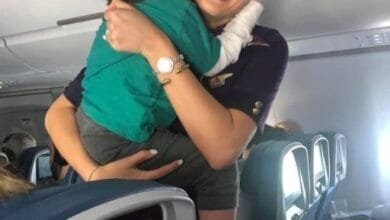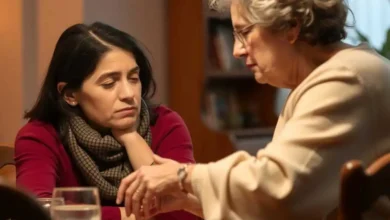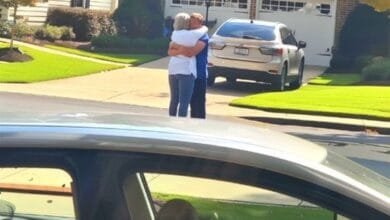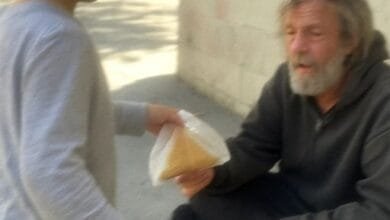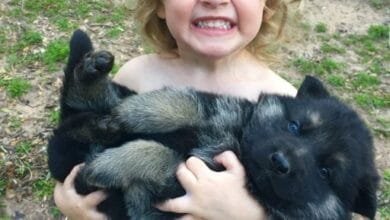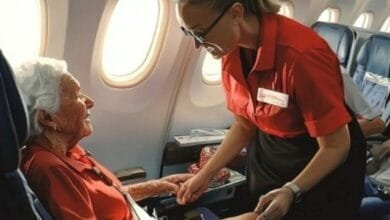For 30 Years, I Believed I Was Adopted — Until I Discovered the Real Reason My Father Lied.
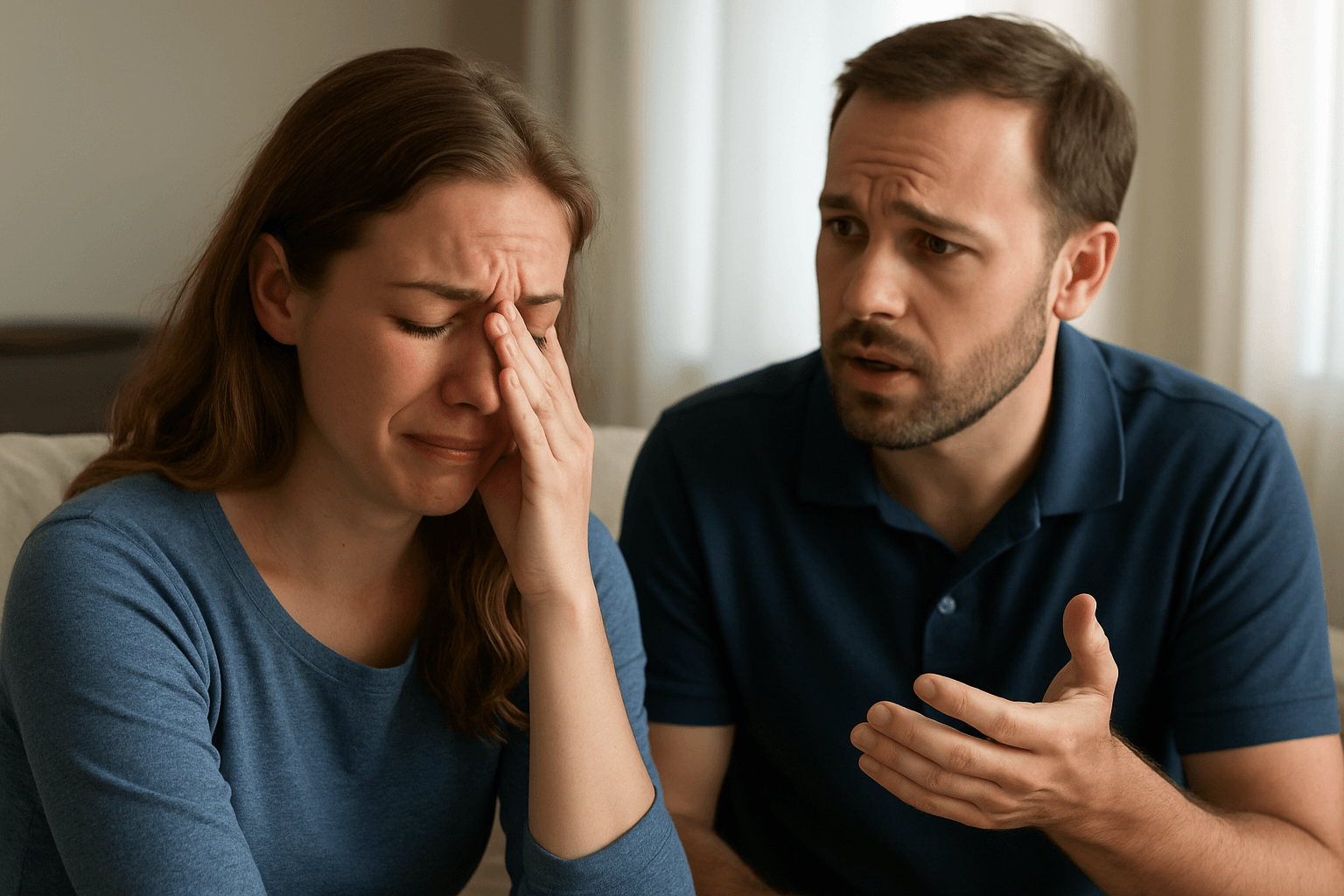
For as long as I could remember, I believed I had been adopted — abandoned by biological parents who couldn’t take care of me. I was just three years old when my father sat me down on the couch and told me.
I had just finished stacking colorful blocks. He placed a gentle hand on my shoulder and said,
— “Sweetheart, there’s something you need to know.”
I looked up, holding my favorite stuffed bunny.
— “What is it, Daddy?”
— “Your biological parents couldn’t take care of you,” he said softly but firmly. “So your mom and I decided to adopt you to give you a better life.”
— “Biological parents?” I tilted my head.
He nodded.
— “Yes. But they loved you very much, even if they couldn’t keep you.”
I didn’t fully understand. But the word “love” made me feel safe.
— “So… you’re my daddy now?”
— “That’s right,” he said, pulling me into his arms.
Six months later, my mother died in a car accident. I barely remember her — just a blurry image of her smile, soft and warm, like sunlight on a cold day. After that, it was just Dad and me.
At first, things weren’t so bad. He made me peanut butter sandwiches and let me watch cartoons on Saturday mornings. But as I grew older, something shifted.
When I was six, I struggled to tie my shoes. I cried, frustrated.
He sighed loudly.
— “Maybe you got that stubbornness from your biological parents,” he muttered.
— “Stubborn?” I asked.
— “Just… figure it out,” he said, turning and walking away.
He said things like that often. Anytime I struggled in school or made a mistake, he blamed my “biological parents.”
On my sixth birthday, Dad hosted a barbecue in our backyard. I was excited because all the neighborhood kids were coming — I wanted to show off my new bike.
While the adults laughed and chatted, Dad raised his drink and said,
— “You know, we adopted her. Her real parents couldn’t handle the responsibility.”
Laughter faded. I froze, holding my plate of fries.
One of the moms said,
— “Oh… that’s sad.”
Dad nodded.
— “Yeah, but she’s lucky we took her in.”
The words hit me like stones. The next day at school, kids whispered behind my back.
— “Why didn’t your real parents want you?” one boy taunted.
— “Are you going to get sent back?” a girl laughed.
I came home in tears, hoping Dad would comfort me. But he just shrugged.
— “Kids will be kids. You’ll get over it.”
Eventually, my birthdays became dreaded events. Dad started taking me to local orphanages “to show me how lucky I was.” He’d point at the kids and say,
— “They have no one. At least you have me.”
By the time I was a teenager, I felt like I would never be enough — never truly wanted.
When I was 16, I finally asked:
— “Can I see the adoption papers?”
He frowned but returned minutes later with a single sheet: a certificate with my name, a date, and a seal.
— “See? Proof,” he said, tapping the paper.
I stared at it. It looked real enough… but something felt off.
I didn’t ask again.
Years later, I met Matt — and he noticed the emotional walls I’d built right away.
— “You never talk about your family,” he said one evening on the couch.
I shrugged.
— “There’s not much to say.”
But over time, I opened up — about the adoption, the teasing, the orphanage visits, and the constant sense of not belonging.
— “Have you ever thought about looking into your past?” he asked gently.
— “No,” I replied quickly. “My dad already told me everything.”
— “Are you sure?” he asked. “What if there’s more? Don’t you want to know?”
I hesitated, heart pounding.
— “I’m not sure.”
— “Then let’s find out together,” he said, squeezing my hand.
That was the first time I ever truly considered it.
When we arrived at the orphanage, it was smaller than I imagined — faded brick walls and worn-down playground equipment, but well cared for. My hands were sweaty as Matt parked the car.
— “Ready?” he asked, looking at me calmly.
— “Not really,” I admitted, gripping my purse like a lifeline. “But I guess I have to be.”
Inside, the air smelled of cleaning products and something sweet — like cookies. A woman with short gray hair and kind eyes greeted us behind a wooden desk.
— “Hi there, how can I help you?”
— “I… I was adopted from here when I was three,” I said. “I’m trying to learn more about my biological parents.”
— “Of course,” she said, furrowing her brow slightly. “What’s your name and adoption date?”
I gave her the details my father always told me. She typed into an old computer, then paused. Her expression grew serious. She tried again, then flipped through a thick binder.
Finally, she looked up, apologetic.
— “I’m sorry, but we don’t have any records of you here. Are you sure this is the right orphanage?”
My stomach dropped.
— “What? But… this is where my dad said I was adopted from. He’s told me that my whole life.”
Matt leaned in.
— “Could there be a mistake? Another location?”
She shook her head.
— “We keep detailed records. If you were ever here, we’d know. I’m truly sorry.”
Everything inside me spun. My entire identity suddenly felt like a lie.
On the drive home, I stared out the window, silent.
— “Are you okay?” Matt asked gently.
— “No,” I whispered. “I need answers.”
— “We’ll get them. It’s time to talk to your dad.”
When we arrived at my father’s house, my heart thundered in my chest. I knocked. He opened the door in his usual flannel shirt, surprised.
— “Hi,” he said cautiously. “What are you doing here?”
— “We went to the orphanage,” I said, not wasting time. “There’s no record of me. Why?”
His expression froze. He was quiet for a long moment, then sighed heavily.
— “Come in.”
Matt and I followed him into the living room. He sat down slowly and rubbed his thinning hair.
— “I knew this day would come,” he said.
— “Why did you lie to me?” I asked, voice breaking.
He looked at the floor.
— “You weren’t adopted,” he said quietly. “You’re your mother’s child… but not mine. She had an affair.”
The words hit me like a punch to the chest.
— “What?”
— “She cheated. When she got pregnant, she begged me to stay. I did… but every time I looked at you, I saw what she did. So I made up the adoption story.”
— “You lied to me my entire life?”
He nodded, shoulders heavy.
— “I was angry. Hurt. I thought… maybe if you believed you weren’t mine, it would be easier for me to accept it. Maybe I wouldn’t hate her so much. It was stupid. I’m sorry.”
— “Did you forge the papers?” I asked, voice shaking.
He nodded again.
— “I had a friend in the records office. He owed me a favor. It wasn’t hard to make it look real.”
Everything — the teasing, the orphanage visits, the cruel comments — wasn’t about me. It was about him. His bitterness. His pain.
— “I was just a child,” I whispered.
— “I know,” he said, tearing up. “And I failed you.”
I stood, legs trembling.
— “I can’t do this right now. I’ll take care of you when the time comes — but I need space.”
Matt stood beside me, jaw tight.
— “She’s coming with me.”
As we walked away, my father called out behind me.
— “I’m sorry! I truly am!”
But I didn’t look back. For the first time in my life… I moved forward.
